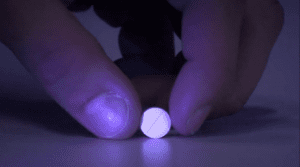
Asian girl child in bed do not sleep suffering insomnia (sleeping disorder) at night in bedroom
Have you ever seen your youngster acting a little hyperactively or having trouble sitting still for long periods of time? Every child occasionally displays signs of inattentiveness, fidgetiness, or impulsivity. A child’s natural behaviour is to run around and be noisy. Young children are frequently restless and energetic. Usually, their exuberant energy is only a characteristic of youth. It may be exhausting, but there is often nothing to be concerned about. Children can occasionally be so talkative and busy that it makes life tough for their parents and other kids. This kind of youngster could be demanding, very enthusiastic, and speak nonstop.
They could make noise, not follow instructions, and have a hard time remaining still. Adults may label him as hyperactive, but this term is problematic because it is frequently used by specialists to describe severe and occasionally hazardous behaviour. However, things change when a child’s behaviour and everyday activities are affected by their frequent hyperactivity and restlessness. How can you determine whether your child is acting normally or whether they possibly have ADHD? Comparing your child’s conduct to that of other children their age might be a useful place to start.
Children with ADHD exhibit particular forms of the three main symptoms of the disorder: hyperactivity, impulsivity, and inattention. The Diagnostic and Statistical Manual (DSM-5) lists:
Few fundamental behaviours that can be signs of ADHD in your child.
- Your child pays little attention to details or makes thoughtless errors when performing tasks at work, in school, or in other activities.
- They struggle to focus in studies or play activities.
- They seem unable to hear when directly addressed.
- They ignore directions and does not complete tasks, daily activities, or school-related responsibilities.
- They struggle with organising themselves, their task and activity.
- They often avoids, hates, or is unwilling to perform task that requires for sustained mental effort (such as schoolwork or homework)
- They misplaces items needed for school or their play activities (e.g., pencils, eraser, books, water bottles, toys, art/craft tools)
- Often gets distracted.
- Often taps or fidgets with their hands or feet or wiggles in their seat
- Frequently leaves their seat when it is anticipated to be remain seated
- They often move around or climbs when it is not suitable.
- Unable to play quietly or participate in leisure activities
- Is always moving and acting as though they are being driven by a motor.
- Speaks too much
- They often answers questions before they are finished and struggles to wait for their turn.
- Disrupts or intrudes in conversation.
In order to validate a diagnosis of ADHD in a kid between the ages of four and seventeen, six or more criteria must be identified; in a child older than seventeen, five or more characteristics must be reported. Before the child becomes 12 years old, the symptoms must start and they must have persisted for more than 6 months. Additionally, symptoms must cause some impairment and manifest in two or more environments, such as the home, classroom, and social occasions.
According to research so far, there are several potential causes of ADHD.
- Brain structure and functioning. ADHD may be accompanied by a decrease in activity in the regions of the brain that regulate attention and level of activity.
- Heredity and genes. It’s common for ADHD to run in families. A child’s risk of having an ADHD parent is one in four. It’s also likely that a sibling or other near relative will also have ADHD. Sometimes a parent’s ADHD is identified at the same time as a child’s ADHD.
- Brain Injury. In certain circumstances, severe brain traumas might result in ADHD.
- Premature birth raises the possibility of ADHD.
- Prenatal exposures, such as alcohol or nicotine from smoking, increase the risk of developing ADHD.
Pollutants and toxins in the surrounding may, in extremely rare instances, may also cause ADHD. For instance, mercury, lead, copper in the body might impact a child’s behaviour and development.
It is recommended that as a parent you might address your first concerns with your physician/paediatrician so they can provide you with advice on what to do next if you think your child may have ADHD. A more thorough evaluation by a good child psychologist or a good child psychiatrist near me, or a qualified clinical social worker, or a licenced mental health counsellor, is necessary for an appropriate diagnosis of ADHD. Assessments frequently involve parents and teachers filling out standardised rating scales, developmental and diagnostic interviews with parents, and, depending on the child’s age, a clinical interview or direct observation with the kid.
Children with ADHD frequently face a variety of school-related difficulties that affect how well they do academically. Parents should discuss the different levels of school-based care offered with their child’s behavioural support staff, school counsellor, or school psychologist.
You can work with Online Counsellor who specialises in child psychology and take guidance and online counselling/ therapy through instant messaging, audio call, or video chat. It has never been simpler to begin your child’s road toward ADHD management. You may get help understanding ADHD from online therapists that specialise in offering top-notch online counselling and evaluation services for those with ADHD. They will also work with you to foster a feeling of cohesion, calm, and understanding. Together with your Online Counsellor, you will develop a disciplinary plan, choose what is best for your kid and your family, and determine how to improve the communication within your family.








